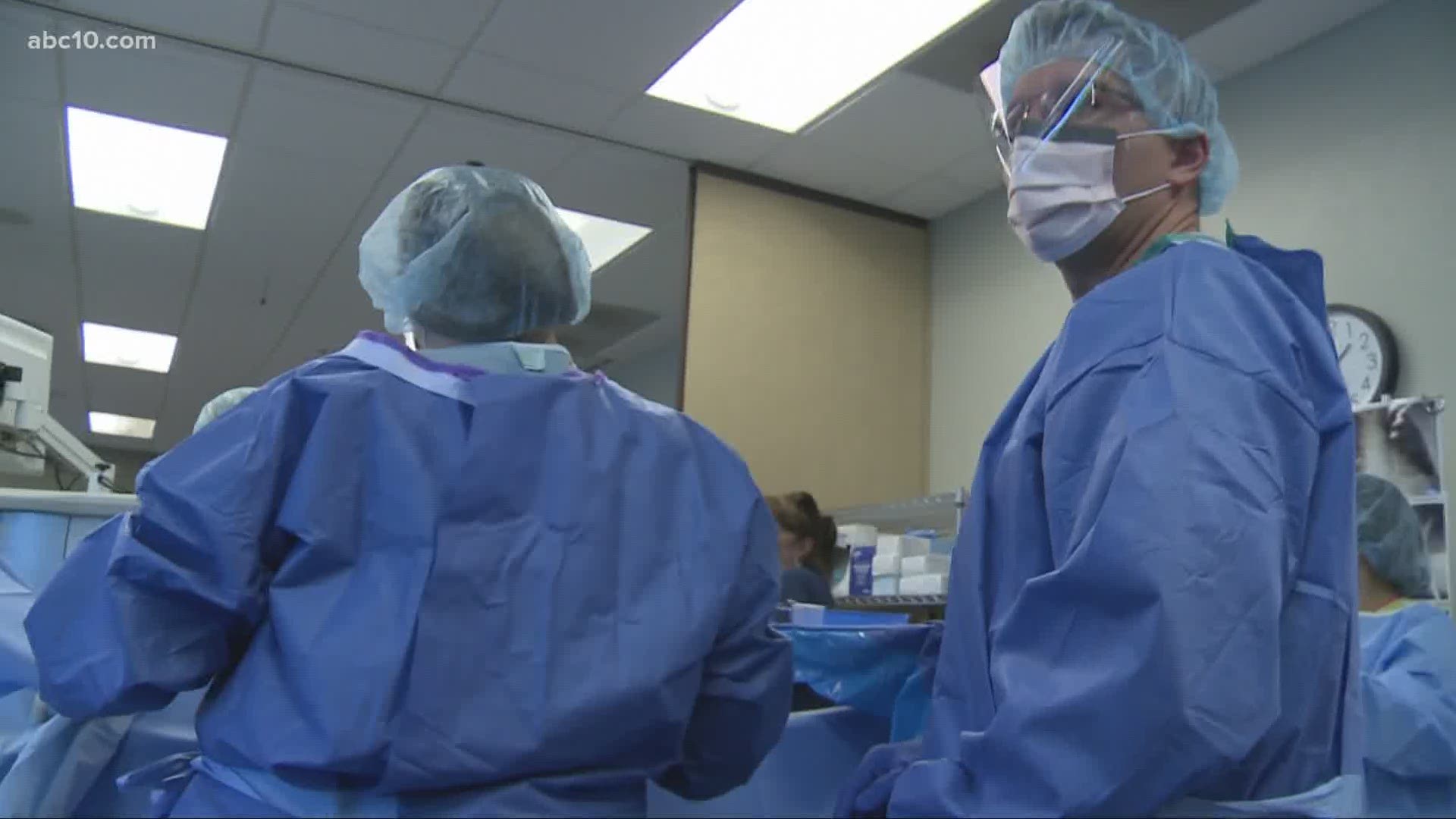SACRAMENTO, Calif — A person who dies from coronavirus can not have their organs or tissue donated. They're medically ineligible.
"The ramifications aren't truly understood yet of how transmittable the virus is," said Jim Martin, from Donate Life California, the state's donor registry.
Despite that, Martin says life-saving transplants are still happening with non-coronavirus patients who have passed. But now, there are added steps.
Those steps include testing the recipient and the organs for COVID-19.
"It's not too different from testing for like, Hepatitis or HIV," Martin said.
However, those life-saving surgeries are happening a lot less. The number of organ transplants nationwide dropped drastically in early March as the spread of coronavirus took hold of the country, according to data from the United Network for Organ Sharing.
In a month's time, living donor transplants dropped from 150 to 16 a week, and transplants from deceased donors dropped from by more than half.
The agency says this week, about 3% of those on the transplant waitlist have been temporarily deactivated due to coronavirus concerns.
A temporary inactivation means that the transplant program has determined that a candidate is temporarily unavailable or unsuitable for transplantation and should not receive organ offers. The transplant program may reactivate the candidate at any time.
At UC Davis Medical center, living kidney donor transplants were halted.
Martin said many hospitals chose to do this to reduce strain on hospitals preparing to be overwhelmed. But he said he expects these operations can resume as long as the state stays the course in flattening the curve.
"I think hospitals are realizing we can move forward with these life-saving surgeries," Martin said.
Ultimately, that decision is up to each individual and their transplant team.
Follow the conversation on Facebook with Van Tieu.
READ MORE:
FOR THE LATEST CORONAVIRUS NEWS,
DOWNLOAD THE OUR APP:
►Stay In the Know! Sign up now for the Daily Blend Newsletter



